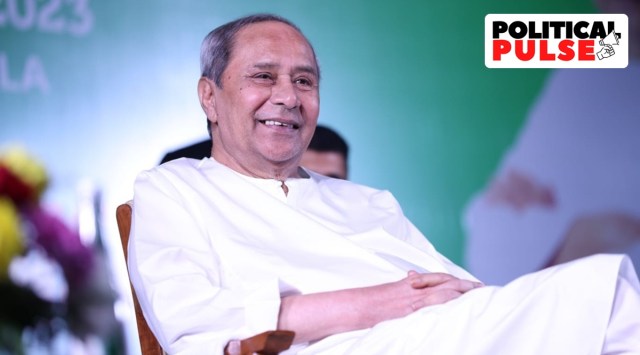Latest Comment
Post Comment
Read Comments
 Odisha Chief Minister Naveen Patnaik (Facebook)
Odisha Chief Minister Naveen Patnaik (Facebook)Resuming its plan to conduct a survey of social and educational conditions of people belonging to backward classes in the state, the Odisha government has given the districts a deadline of July 12 to finish the work.
In a letter issued on February 24, Odisha State Commission for Backward Classes (OSCBC) member-secretary Vir Vikram Yadav has asked all district collectors to complete the survey by July 12. The OSCBC will supervise the survey process.
Odisha will be the second state after Bihar to have decided to collect data on the socioeconomic conditions of people from backward classes. Although elections in Odisha are largely not contested along caste or religion lines, the BJD government’s fresh push to conduct the survey a year before Lok Sabha and Assembly polls are due seems to be an attempt to attract voters from backward classes. It is also seen as a bid to outsmart any move by the opposition BJP and Congress to woo voters from these segments of the population.
While the Naveen Patnaik-led BJD government had decided to conduct the survey in May and June 2021, the plan was postponed due to the surge of the second wave of Covid-19.
Even though there has been no formal data on the population of people from backward classes, they are believed to constitute approximately 54% of the state population.
“A fresh survey of backward classes is crucial to make focussed planning for their socioeconomic development. Since we don’t have access to any recent data on social and educational conditions of the backward classes, we cannot make effective policies for them (at present),” a government official privy to the development said.
Collecting accurate data of various backward castes is crucial to effectively implement reservation policies, another government official said.
Odisha’s SC/ST Development and Backward Classes Welfare Minister Jagannath Saraka said: “There is no politics in the decision to conduct a survey of socio-education conditions of backward classes … To have fresh data is necessary for effective policy formulation.”
In a written reply on July 26, 2022, Union MoS (Home) Nityananda Rai had informed Lok Sabha that states such as Odisha, Bihar and Maharashtra had requested the Centre to collect caste details in the (2021) Census.
Not receiving a positive response from the Centre, the Odisha government had, in February 2020, amended the OSCBC Act to empower the Commission to conduct a survey of people belonging to backward classes. The OSCBC had identified 209 communities in Odisha as socially and educationally backward classes (SEBC). Recently, the state Cabinet approved the inclusion of 22 more castes in the state OBC list, taking the number to 231.
These SEBCs enjoy 11.25% reservation in government jobs, although there is no reservation for them in education.
In February 2009, the Patnaik government had made 27% reservation for SEBC communities in government jobs. Accordingly, a recruitment advertisement in 2011 earmarked a 27% quota for backward classes. It was challenged in the Odisha Administrative Tribunal, as 27% reservation to SEBCs would take the total quota ceiling to 65.25% since SC and ST candidates have reservations of 16.25% and 22.5%, respectively.he government then reduced the SEBC quota to 11.25%.




